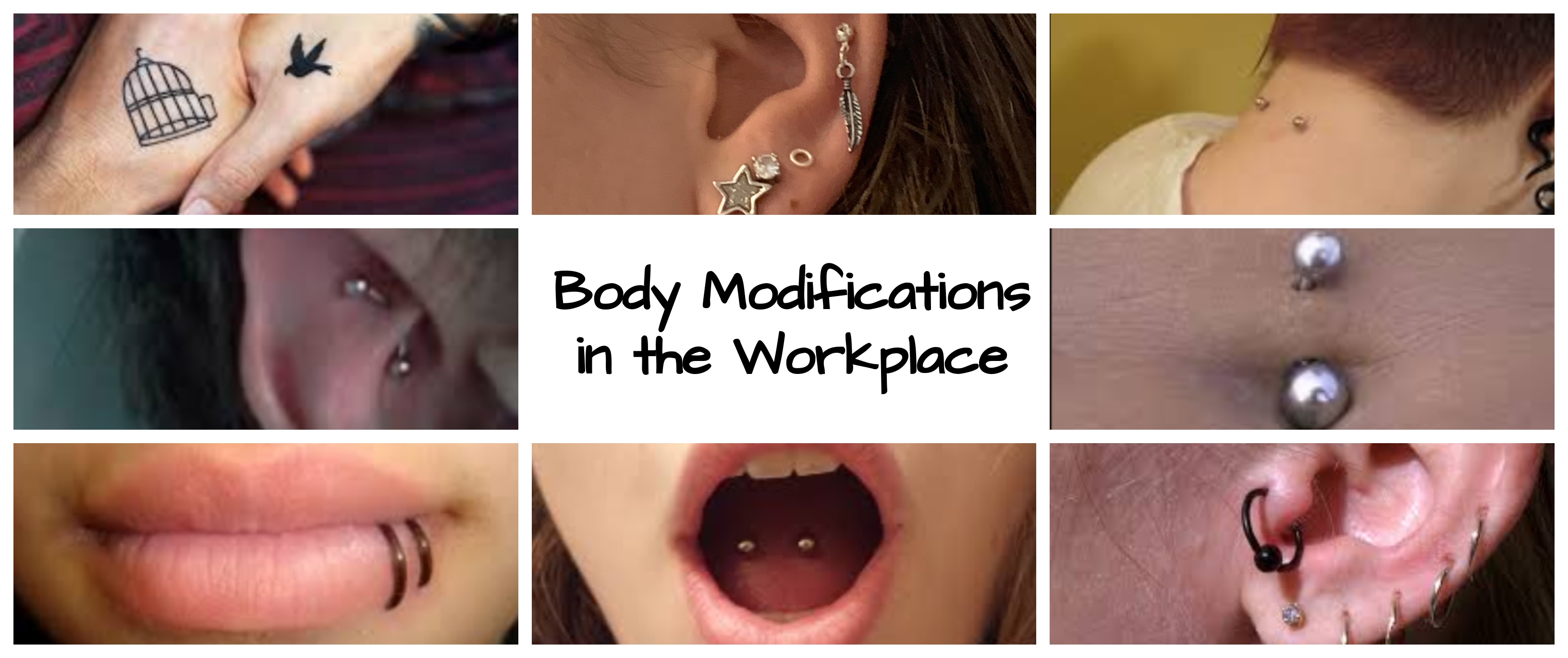Have you ever been stopped from getting your nose pierced? Did your parents tell you it was unprofessional and will stop you from getting a good job? Body mods are a form of artistic expression, so why should they be limited or non-existent in order to get a “good job?”
A credible argument can be made for both sides. Modifications rarely impact the way someone does their job. Even part-time jobs that high school students typically have (hosting, waiting, cashier) aren’t jobs that are going to be held back by having a visible tattoo or piercing. Of course, all workplaces have their own rules pertaining to image and upkeep. Some choose to allow their staff to have visible modifications and others do not.
“I have a stick and poke and this can get you fired as a lifeguard at some pools, which I’ve seen happen,” said senior and lifeguard Harper Bone. “[The stick and poke] is really hard to hide, especially in a swimsuit, so I will probably base my tattoo placements on that until I get a full time job.”
Stick-and-poke tattoos are hand-done tattoos made with a single or small amount of needles that are hand-poked. They have become more popular amongst high school students and frugal ink lovers, according to Vice.
“I think [employers] should be able to [discriminate based on piercings and tattoos] since companies are all about certain images and professionalism,” Bone said. “However, [policies] should evolve as people do. So, tattoos and normal piercings shouldn’t be a big deal. Face piercings and stretched nostrils however…”
According to the North Carolina Food Code Manual, “Except for a plain ring such as a wedding band, while preparing FOOD, FOOD EMPLOYEES may not wear jewelry including medical information jewelry on their arms and hands.” This statement requires employers to prohibit any jewelry worn by employees besides a single ring. This statement must be listed in any food employee’s handbook. The employer may add their own rules and regulations as far as body piercings and tattoos go.
“With piercings, there isn’t any food code, as long as you stay clean,” said Executive Chef and owner of Postal Fish Company, James Clark. “Rings and watches around your arms can get caught on pans and you can get burnt or get cut. It could be as simple as a little hot water on your hand or something a little bit more dramatic like a vat of oil falling on you because it got caught on something.”
While there are no laws prohibiting an employee from getting piercings or tattoos, the safety of everyone in the kitchen is held in the highest regard. Employers make individualized handbooks regarding the appearance of employees or keeping their specific kitchen staff safe.
“We have a very liberal policy on tattoos, earrings, nose rings, whatever; [they] are acceptable,” Clark said. “The only thing that we don’t allow are things around your arms. A wedding ring is acceptable, and that’s it. Anything else needs to be removed, not because of appearance but because it’s a safety risk.”
According to Pew Research Center, 38% of young Americans ages 18 to 29 have at least one tattoo. Over a third of young people have a tattoo and the workplace cannot survive without them.
Northwood theater teacher Kayla Sharp fits into these demographics, having quite a few tattoos and piercings herself, but dislikes the idea that there is any correlation between tattoos or piercings and professionalism.
“I think professionalism comes from more than [having a tattoo or piercing,]” Sharp said. “I think there needs to be a level of professionalism, but I don’t think that the way that someone looks is indicative of that.”
Sharp recognizes that her tattoos and piercings may impact others’ perceptions of her in the workplace, though more from her students than her coworkers.
“I guess there might be some misconceptions from students,” Sharp said. “Not so much from coworkers or from superiors, but mostly from students that I am maybe more lenient, or more easy going, or that certain things are more acceptable than what I actually believe.”
-By Emma Pollard & Madison Clark



